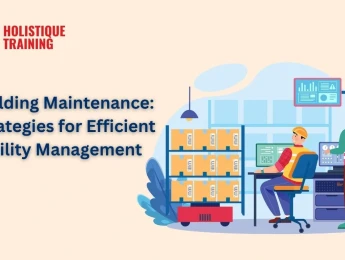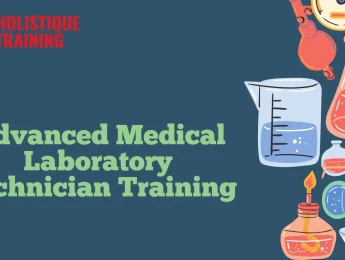It is crucial to prioritise facilities management within any industry organisation. Facilities management is an important factor in ensuring maximum safety for all employees and clients, as well as supporting the organisation by reducing overall maintenance costs and protecting it from liability.
Facilities management ensures that an organisation's physical features and processes function as efficiently as possible. Regular maintenance and repairs on different features and structures ensure any potential problems are identified as soon as possible before they can cause long-term issues. Negating and managing these risk factors closely through risk management is vital in ensuring the business can continue functioning as desired and work towards its goals and objectives without disruptions.
To work in facilities management, one must possess and develop many skills and competencies. Attention to detail and ensuring compliance with all health and safety standards are key.
Upon completion of this course, participants will be able to:
- Understand the importance of facilities management within an organisation.
- Explore the roles and responsibilities of a facilities manager.
- Explain the concepts, principles, and typical functions involved in facilities management.
- Evaluate what skills and competencies are necessary to work within facility management.
- Effectively maintain various management systems to ensure maximum productivity within the organisation.
- Assess the role of risk management within facilities management.
- Examine different risk management methods and techniques.
- Incorporate key statistical methodology within maintenance planning.
- Ensure all facilities are compliant with health and safety standards and laws.
This course is designed for anyone within an organisation responsible for facilities management. It would be most beneficial for:
- Facilities and Maintenance Managers
- Risk Managers
- Contractors and Sub-contractors
- Operations Managers
- Risk Analysts
- Risk Auditors
- HSE Officers
- Compliance Officers
This course uses a variety of adult learning styles to aid full understanding and comprehension. Participants will review real-world risk management plans of established organisations to highlight major and minor risks and debate the effectiveness of preventative measures.
The participants will use a variety of learning methods to guarantee a full understanding of the taught content. These methods will include presentations, video materials, group discussions, and practical activities. This combination of methods will ensure they can develop their knowledge and related skills, and working alongside their peers, they will have the opportunity to offer and receive constructive feedback.
Day 5 of each course is reserved for a Q&A session, which may occur off-site. For 10-day courses, this also applies to day 10
Section 1: Fundamentals of Facilities Management
- Defining facilities management within an organisation.
- Explaining the necessity and importance of facilities management.
- Understanding the consequences of poor facilities management.
- Exploring core competencies, skills, and responsibilities of an FM professional.
- Identifying key elements of FM – managing resources, contractors, expectations, and the work environment.
Section 2: Maintenance and Control
- Recognising facilities that require regular maintenance and creating a proactive plan.
- Prioritising tasks based on repair severity and risk to life and organisational function.
- Ensuring safety equipment (alarms, fire blankets, extinguishers, fire exits) is in working order.
- Controlling maintenance and repair costs.
Section 3: Facilities Management Strategies
- Managing people and enhancing productivity.
- Monitoring FM performance to ensure efficiency and safety.
- Developing strategies to address maintenance challenges and problems.
- Balancing facility ‘up-time’ and ‘down-time’ to optimise organisational performance.
Section 4: Risk Management
- Understanding the importance of effective risk management in FM.
- Identifying factors that influence facility safety and potential risks.
- Conducting risk assessments and hazard identification audits.
- Creating risk management plans, prioritising risks and outlining preventive measures and safety procedures.
Section 5: Health, Safety, and Compliance
- Evaluating local and regional health and safety laws and standards.
- Ensuring organisational compliance with health and safety regulations.
- Integrating safety laws into risk management plans.
- Pursuing external accreditation for safety, quality, and environmental management.
Section 6: Sustainability and Environmental Stewardship
- Applying green building standards and certifications in FM.
- Implementing energy management and conservation practices.
- Promoting sustainable practices within facilities management operations.
Section 7: Technology in Facilities Management
- Utilising Building Management Systems (BMS) for operational efficiency.
- Implementing Computer-Aided Facilities Management (CAFM) software.
- Exploring innovations and trends in FM technology to improve performance.
Section 8: Leadership and Team Management
- Applying leadership styles and techniques specific to FM.
- Building and leading effective FM teams.
- Resolving conflicts and enhancing problem-solving capabilities within the FM team.
Upon successful completion of this training course, delegates will be awarded a Holistique Training Certificate of Completion. For those who attend and complete the online training course, a Holistique Training e-Certificate will be provided.
Holistique Training Certificates are accredited by the British Assessment Council (BAC) and The CPD Certification Service (CPD), and are certified under ISO 9001, ISO 21001, and ISO 29993 standards.
CPD credits for this course are granted by our Certificates and will be reflected on the Holistique Training Certificate of Completion. In accordance with the standards of The CPD Certification Service, one CPD credit is awarded per hour of course attendance. A maximum of 50 CPD credits can be claimed for any single course we currently offer.
- Course Code IND21-103
- Course Format Classroom, Online,
- Duration 5 days














